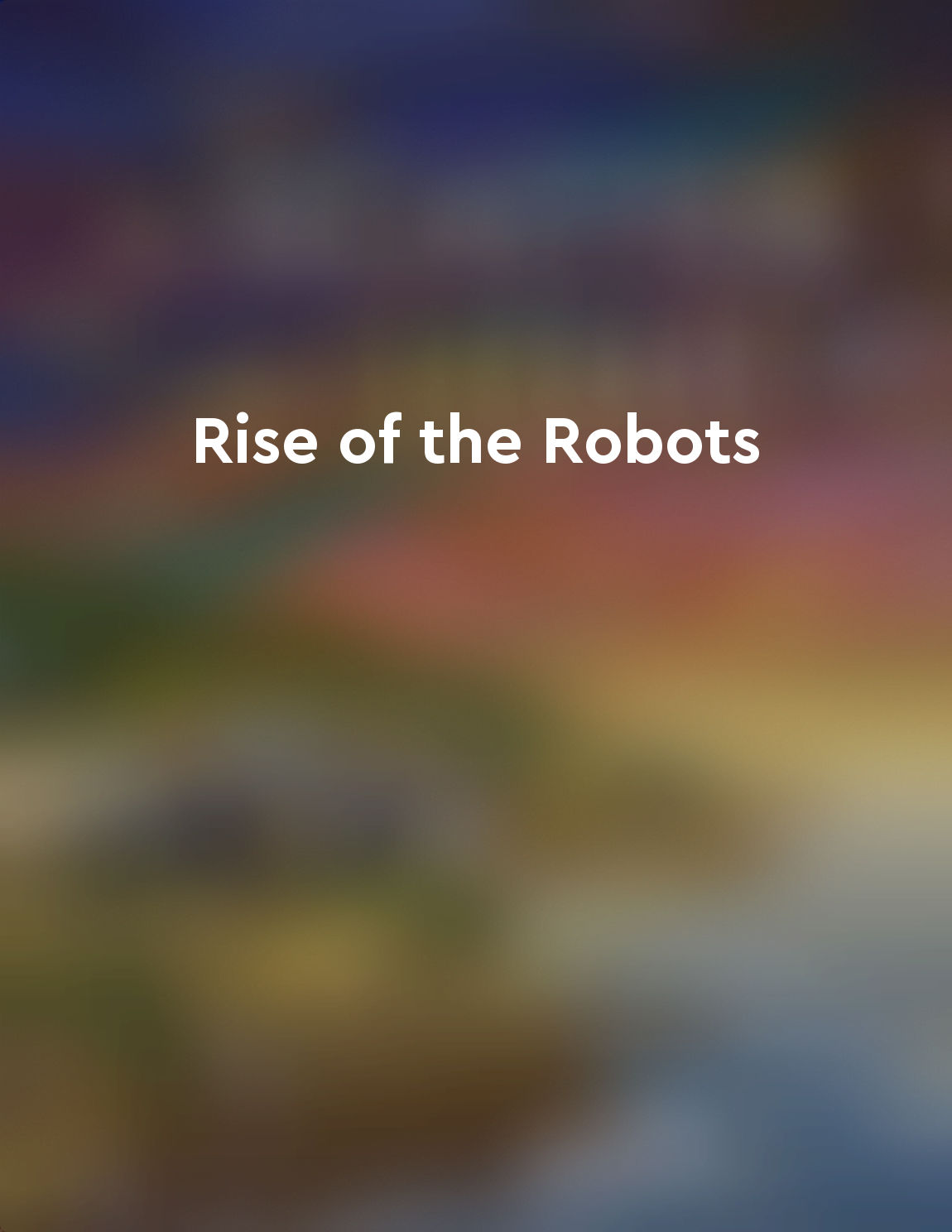The rise of automation threatens millions of jobs in various industries from "summary" of Who Owns the Future? by Jaron Lanier
The march of automation through the economy is relentless. Every year, more tasks that used to require human labor are being taken over by machines. This trend is not limited to manufacturing; it affects all industries, from healthcare to transportation to finance. As a result, millions of jobs are at risk of disappearing. The threat posed by automation is particularly acute in industries that rely heavily on routine, repetitive tasks. These are the jobs that are most easily replaced by machines, which can perform these tasks faster, cheaper, and with greater precision than humans. For workers in these industries, the rise of automation is a clear and present danger to their livelihoods. But the impact of automation is not limited to low-skilled workers. Even jobs that require specialized skills and training are at risk. Advances in artificial intelligence and machine learning are enabling machines to perform increasingly complex tasks that were once the exclusive domain of humans. As a result, even highly skilled professionals are finding themselves in competition with machines for their jobs. The consequences of this trend are profound. As more jobs are automated, millions of workers are being displaced. This not only threatens their economic security but also undermines the social fabric of communities that rely on these jobs. The rise of automation is creating a new class of "technological unemployment" that is eroding the traditional employer-employee relationship and reshaping the structure of the economy. In this new economy, the winners are those who own the machines that are displacing workers. By controlling the means of production, they are able to capture an ever-growing share of the wealth generated by automation. Meanwhile, those who are displaced by automation are left to fend for themselves in an increasingly precarious and uncertain labor market. The rise of automation is not just a technological phenomenon; it is a social and economic upheaval that is reshaping the world in ways that we are only beginning to understand.Similar Posts
Collective bargaining is a key aspect of labour laws
Collective bargaining is a significant element of labour laws as it serves as a mechanism for negotiation between employers and...
Artificial intelligence alters human perception
Our perception of reality is heavily influenced by the information we receive from our senses. What we see, hear, touch, taste,...
Urbanization transforms society
As people move from rural areas to cities, they bring with them their habits, values, and ways of doing things. These changes d...

AI can enhance creativity
John Markoff explores the idea that artificial intelligence has the potential to enhance human creativity. By analyzing vast am...

The automation of jobs is leading to increased economic inequality
The rise of automation is fundamentally reshaping the economy, with profound implications for workers across all industries. As...
Automation and artificial intelligence are transforming the job market
The rapid advancement of automation and artificial intelligence has fundamentally altered the landscape of the job market. Trad...
Unions are important for workers' rights
Unions play a crucial role in protecting workers' rights. They provide workers with a collective voice that can be more powerfu...
Automation can lead to loss of skills
The march of automation through the workplace and beyond has long been regarded as a boon to human progress. Machines, it's ass...

The benefits of AI must be balanced with ethical considerations
In the race to develop AI, it's easy to get caught up in the promise of endless benefits. Companies, governments, and even indi...
Corporate social responsibility is not enough
Many people believe that the solution to the problems of capitalism lies in making corporations more socially responsible. They...

